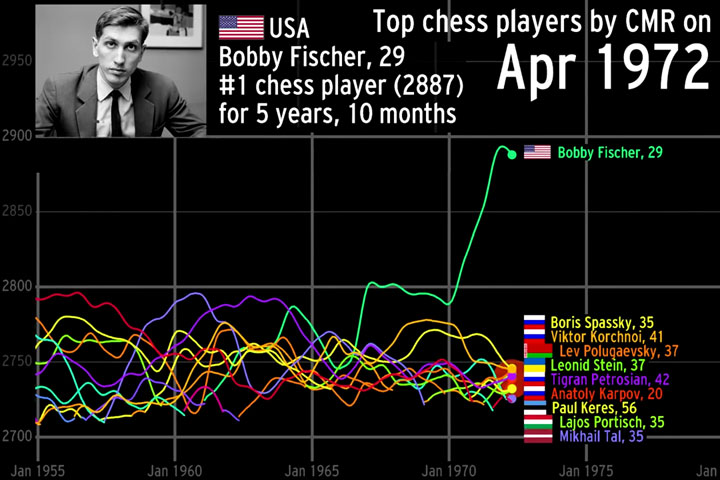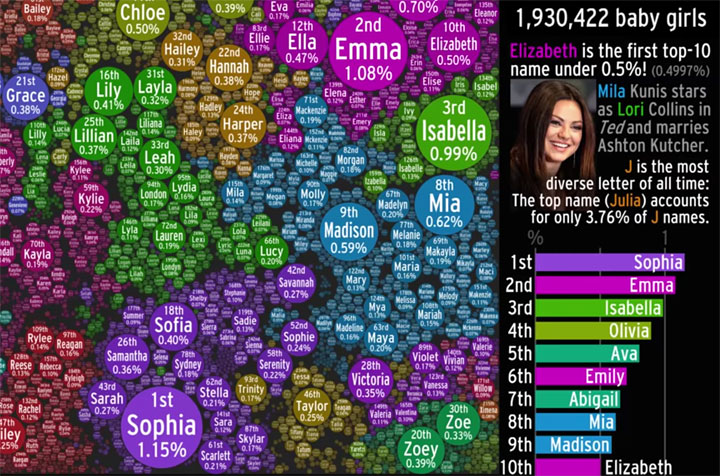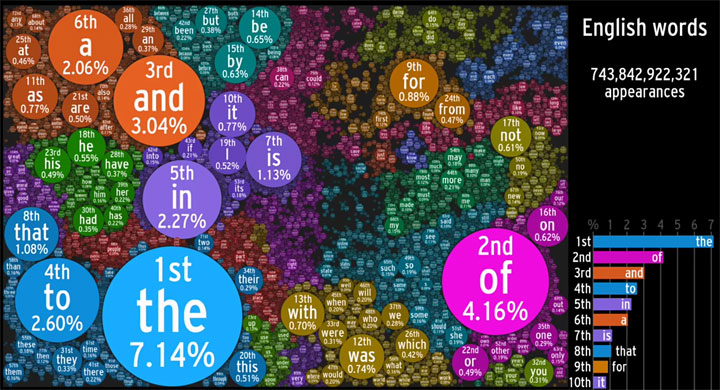.jpeg)

.jpeg)
This visualisation tracks FIDE ratings of the top 20 players starting from July 27, 2000, through February 24th, 2019. There are a lot of interesting features that pop out, such as the rapid ascendence of Magnus Carlsen beginning in June 2007, or the extreme variability of Vassily Ivanchuk. You'll notice certain players disappear, such as when Garry Kasparov abruptly retired in 2005 while still number one. Others see more gradual moves up and down.
TheRanker on YouTube
Want more? For reference, here's the 2016 Abacaba visualization charting the history of top chess players over time. The video presents historical ratings of the top ten players for any given time are tracked. This video is six minutes long, and you would do well to maximize the YouTube player, lean back, sip your coffee (or chai) and enjoy this extraordinary presentation.
Try to spot patterns, e.g. at what age do players enter the group of top ten; do most players peak in their twenties; how dominating were the top players; how long did they stay in place one; who were the oldest ones that were still in the top ten? Feel free to post your observations in our comments section below.
The data, in this case, is taken from several sources: Kevin MacLeod's Edo Historical Chess Ratings site, which tracks the ratings of top players between 1809-1920 (how this is done is described in this comprehensive article); ChessMetrics Performance Ratings (1910-2005), calculated by Jeff Sonas; and of course the official FIDE Elo ratings, from 2000-2016.

Fischer was the number one player for a far shorter period than Carlsen or Kasparov
In 2013 the most common girl's name was Sophia — 1.15% of all girls was so named. For boys it was Noah (0.9%).

Which is the most common English word? Here's the bubbled visualization.

743 billion words were examined, and 97,565 distinct words found, with the most common being "the", at 7.14% of all the words encountered